House of the Dragon episode 9 review: The usurpers and the oath keepers
The penultimate episode of the season, The Green Council, is a captivating teaser for the battle to come in the season finale next week
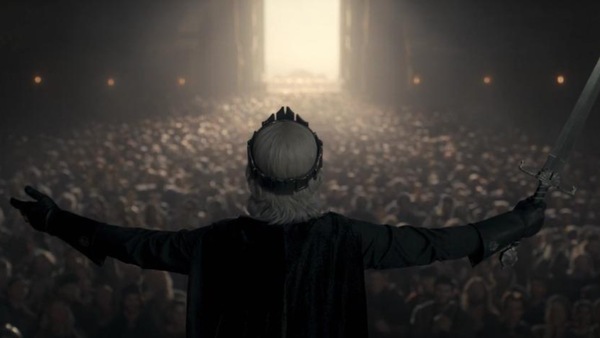
Last Updated: 03.34 PM, Oct 17, 2022
Story: As news of the death of King Viserys (Paddy Considine) spreads across the Red Keep, Otto Hightower (Rhys Ifans) and a majority of the Small Council quickly sets their plans in motion to place Prince Aegon (Tom Glynn-Carney) as the new ruler of the Seven Kingdoms instead of the heir Princess Rhaenyra (Emma D’Arcy) Even though Queen Alicent (Olivia Cooke) disagrees with her father’s methods, she submits that blood must be spilt to ‘maintain the peace’ and avoid a large-scale war.
Review: The relative peace and quiet in the Seven Kingdoms during the reigns of King Viserys and during King Jaehaerys before him, is almost surreal considering it is a story set in the universe of A Song of Ice and Fire. But the Viserys’s death has had a ripple effect on how the peace is coming to an end in Westeros. Queen Alicent is on the brink of shedding the last bit of decency left in her by forcing her son to ascend the Iron Throne. It is almost ironic that Alicent misinterprets the King’s last words considering her whole life has been a collection of half-truths and misunderstandings — at times through no fault of her own.
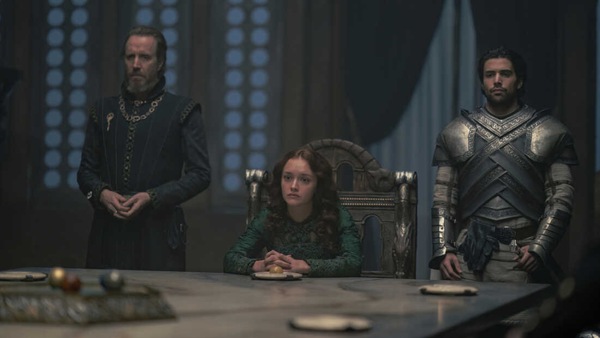
Her father, Otto Hightower, is the man holding strings, and despite his lust for power, he is never depicted as someone who can be tyrannical. In episode nine, he is portrayed as someone who is willing to go to any lengths to assert his authority and get what he desires. It is interesting to note that some of the other morally grey and complex characters in Game of Thrones such as Jamie Lannister, Theon Greyjoy, and Sandor Clegane, or even Daemon Targaryen from House of the Dragon, are self-aware that they are capable of depravities or have committed atrocities in the past. The Hightowers on the other hand have a misguided sense of righteousness and they firmly believe that their actions are for the greater good. It is almost Daenerys Targaryen-like in how they are ignorant of their disillusionment that they are the rightful rulers of the Seven Kingdoms.
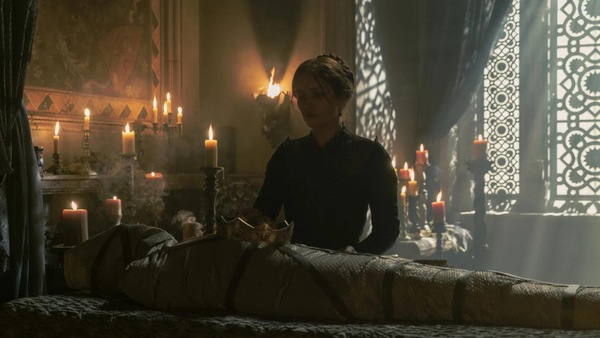
Throughout the season, Graham McTavish’s character, Ser Harold Westerling, has had limited screen time and his arc did not extend beyond being Lord Commander of the Kingsguard. And it was as if the brilliance of McTavish was wasted in the show. However, episode nine appears to hint that he may have a larger role yet to play. In the book Fire and Blood, his character died long before Viserys, so there could be a reason why showrunner, Ryan J Condal and Miguel Sapochnik have kept him alive for the season finale. In episode nine, The Green Council, he has a scene almost identical to another Lord Commander of the Kingsguard, Ser Barristan Selmy (Ian McElhinney), and his iconic exit from King Joffrey’s court in Game of Thrones.
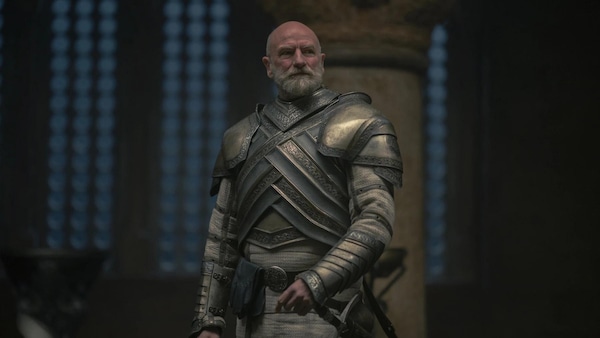
The star of the episode, however, is undoubtedly Princess Rhaenys Targaryen (Eve Best). Queen Alicent can thank the ‘Seven’ that Rhaenys was in a more forgiving mood. She is easily one of the best characters of the series, and surprisingly an endearing one considering Targaryens have a reputation for their flawed sense of morality and social values.
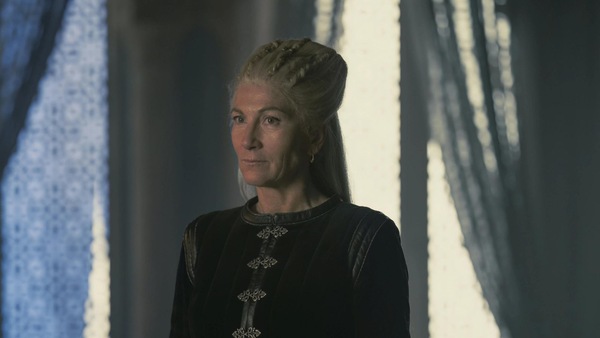
Verdict: The series has finally embraced the treacherous side of Game of Thrones with its penultimate episode, and it is simply outstanding storytelling. Next season’s finale promises to be exhilarating and could set things up for Dance of the Dragon.
Subscribe to our newsletter for top content, delivered fast.

